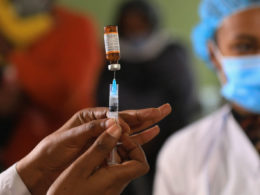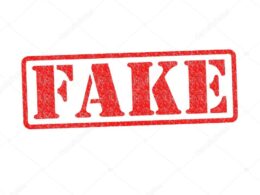News on the development of Covid-19 vaccines has been welcomed by scientists and public health officials while ordinary people thought it meant the end of suffering brought by the pandemic.
Globally, as at November 30, 2020 there are 62 363 527 confirmed cases with 1 456 687 confirmed deaths across the world, with 220 countries experiencing the fast-spreading scourge.
But public health officials have warned that without a 100 percent efficacy rate, the Covid-19 vaccines will not end the pandemic, as people must continue wearing masks, sanitising and social distancing.
International reports said two of the vaccine makers, Moderna and Pfizer reported that their shots are 94.5 percent and 95 percent effective, respectively, whose efficacy refers to the vaccines’ ability to protect against Covid-19 disease, not necessarily against infection with the virus.
Trial volunteers who underwent rigorous trials to test the vaccines designed to measure Covid-19 illness, were randomly given either the vaccine or a placebo, and then asked to report any symptoms they experienced, such as fever, cough, shortness of breath or muscle aches.
According to reports, study researchers then determined whether or not to test them.
If people tested positive, they were logged as a confirmed Covid-19 case, of which researchers then looked at the group of Covid-19 cases and compared how many people had been vaccinated versus how many were listed as placebo.
The effectiveness measured whether these people went on to develop more symptoms of Covid-19 meaning those who are vaccinated are not necessarily immune to re-infection but more likely to experience fewer symptoms and not be as sick as those who are not vaccinated.
Since the vaccines do not necessarily protect against infection, public health experts said preventative measures such as wearing masks, social distancing and avoiding indoor gatherings are still critical to containing the virus.
In an interview with CITE, Executive Director of Community Working Group on Health (CWGH), Itai Rusike, said a Covid-19 vaccine meant a move toward elimination but not the end of the pandemic.
“For us to end Covid-19 we will need to address the imbalances and avail vaccines to all. The most important factor is to adhere to the World Health Organisation (WHO) prescribed guidelines,” he said.
The public health activist said wearing of face masks had become the new normal and physical distancing must continue.
“Washing of hands has to continue for some time until there is full coverage of vaccines where the cost element and universal access is dealt with. This must complement all other measures so the effectiveness of the drug depends on adherence to WHO guidelines and embracing the new normal,” Rusike highlighted.
Former health minister, Dr David Parirenyatwa said ending Covid-19 required people to continue the behaviours that have proven to stymie its spread.
“A vaccine is a preventative measure and can be effective alongside other preventative measures. Yes, vaccines are most welcome in treating diseases, look at measles, TB these have been managed but even if we have the vaccine, don’t cough into somebody else. If you have Covid-19 symptoms go and be examined. So a vaccine is not the end of Covid-19 but a very, very good way forward,” he said.
Chief Coordinator for the National Response to Covid-19 in the Office of the President and Cabinet, Dr Agnes Mahomva, said Zimbabwe through the national taskforce group on immunisation was actively following up on all these developments and requirements pertaining to vaccines.
“This includes putting in place national strategies and plans and resource mobilising for our budgets in preparation for a Covid-19 vaccine roll out once an effective and safe vaccine has been approved by WHO and Zimbabwe itself. In the meantime let us continue to social distance one or two metres apart, wear a face mask that covers both the nose and mouth, frequently wash your hands with soap and running water or frequently sanitise with alcohol based sanitisers,” she said.








